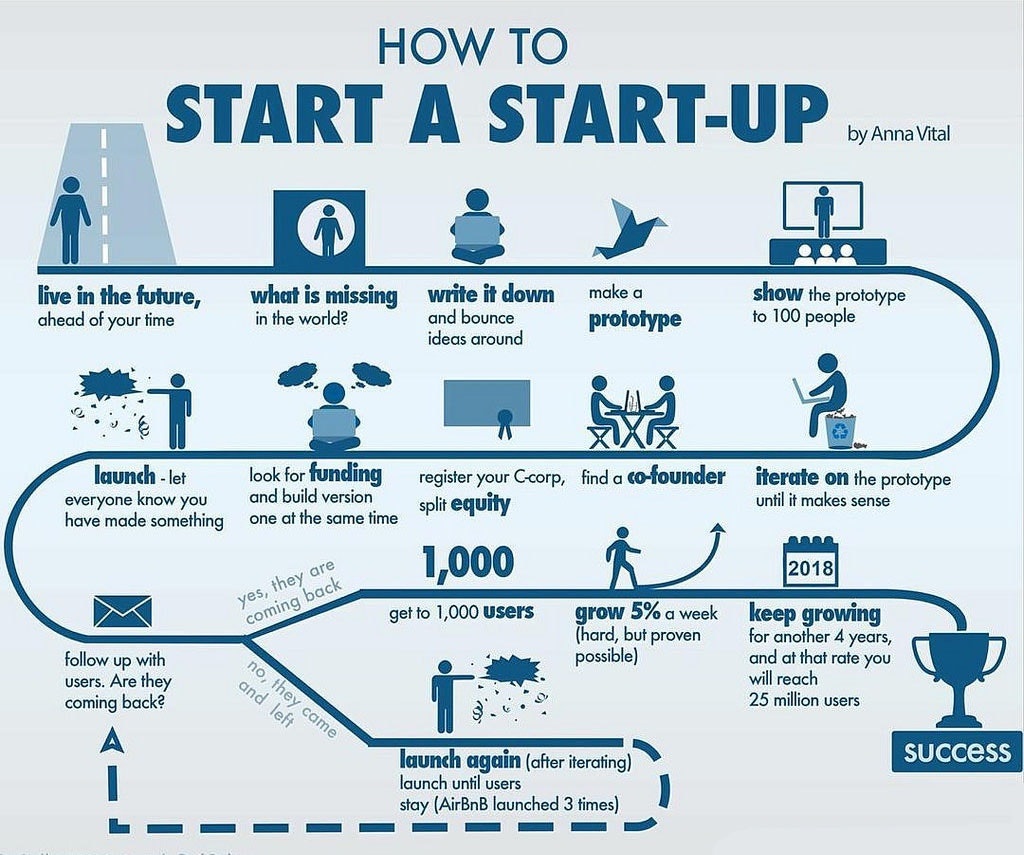How to Build Startup Partnerships: A Guide to Success opens doors to the world of forming impactful collaborations in the startup realm. Dive into a narrative filled with insights and strategies that will reshape the way you view partnerships.
Exploring the benefits, strategies, and best practices, this guide will equip you with the tools needed to foster strong and enduring partnerships for your startup’s growth.
Importance of Startup Partnerships

Partnerships play a crucial role in the success of startups by providing various benefits that can help them thrive in the competitive business landscape. These collaborations enable startups to leverage the expertise, resources, and networks of their partners to achieve mutual growth and success.
Accelerating Growth Through Partnerships
- Access to Resources: Startup partnerships allow access to additional resources such as funding, technology, talent, and infrastructure that startups may not have on their own.
- Shared Expertise: Collaborating with established companies or other startups with complementary skills and knowledge can help startups navigate challenges more effectively and innovate faster.
- Market Expansion: Partnerships provide opportunities for startups to enter new markets or reach a larger audience through the distribution channels and customer base of their partners.
- Rapid Scaling: By pooling resources and capabilities, startups can scale their operations more quickly and efficiently, accelerating their growth trajectory.
Examples of Successful Startup Partnerships
- Uber and Spotify: Through their partnership, Uber integrated Spotify into its app, allowing passengers to control the music during their rides. This collaboration enhanced the overall customer experience and differentiated Uber from its competitors.
- Salesforce and AWS: Salesforce leveraged Amazon Web Services (AWS) to enhance the scalability and performance of its cloud-based services, enabling faster innovation and better service delivery to its customers.
- Starbucks and Alibaba: Starbucks partnered with Alibaba to launch a virtual store in China, leveraging Alibaba’s digital platforms to engage customers and drive online sales. This partnership helped Starbucks strengthen its presence in the Chinese market and adapt to changing consumer preferences.
Finding the Right Partners for Your Startup
Finding the right partners for your startup is crucial for its success. Partnerships can provide valuable resources, expertise, and connections that can help your business grow and thrive. Here are some strategies for identifying potential partners that align with your startup’s goals.
Identifying Potential Partners
When looking for potential partners, start by clearly defining your startup’s goals and needs. Consider what specific skills, resources, or connections would benefit your business the most. Look for partners who share similar values and vision for the future.
- Networking: Attend industry events, conferences, and meetups to network and connect with potential partners. Building relationships in your industry can help you identify individuals or companies that align with your goals.
- Research: Conduct thorough research on potential partners to ensure they have a solid reputation and track record. Look for partners who have experience in your industry and a history of successful collaborations.
- Referrals: Ask for recommendations from other entrepreneurs, investors, or industry experts. Referrals can help you identify trustworthy partners who have a proven track record of delivering results.
Evaluating Compatibility and Reliability
Before entering into a partnership, it’s important to evaluate the compatibility and reliability of potential partners. You want to ensure that your values, work ethic, and communication styles align to avoid any potential conflicts down the line.
Communication is key in any partnership. Make sure you have open and honest discussions with potential partners to ensure you are on the same page.
- Compatibility: Look for partners who have complementary skills and strengths that can fill in the gaps in your startup. Consider how their expertise can enhance your business and drive growth.
- Reliability: Evaluate the reliability of potential partners by reviewing their past work, client testimonials, and references. You want to partner with individuals or companies who are dependable and trustworthy.
Importance of Complementary Skills and Resources
When selecting partners for your startup, it’s essential to consider the importance of complementary skills and resources. Partnering with individuals or companies that bring different strengths to the table can help your business overcome challenges and achieve success.
- Skills: Look for partners who have expertise in areas where you may lack experience. For example, if you are a tech-focused startup, partnering with someone with strong marketing skills can help you reach a wider audience.
- Resources: Consider what resources potential partners can bring to the table. This could include funding, industry connections, or access to new markets. Partnering with someone who can provide valuable resources can give your startup a competitive edge.
Building Strong Partnerships: How To Build Startup Partnerships
Building a strong partnership with another company is crucial for the success of a startup. It requires careful planning, effective communication, and mutual trust. Here are the steps involved in establishing a strong partnership and examples of successful collaboration strategies used by startups:
Establishing a Strong Partnership
- Identify complementary strengths: Before entering into a partnership, it is essential to identify the strengths and weaknesses of both companies. Look for areas where the two companies can complement each other to create a mutually beneficial relationship.
- Set clear goals and expectations: Define the goals and expectations of the partnership from the beginning. This will help ensure that both parties are aligned and working towards the same objectives.
- Establish open communication: Clear and open communication is key to maintaining a strong partnership. Regular communication channels should be established to discuss progress, challenges, and any changes in direction.
- Build mutual trust: Trust is the foundation of any successful partnership. Both parties should trust each other to deliver on their commitments and act in the best interest of the partnership.
Successful Collaboration Strategies
- Joint marketing campaigns: Collaborating on marketing campaigns can help both companies reach a wider audience and increase brand awareness.
- Product integration: Integrating products or services from both companies can create a more comprehensive offering for customers and drive greater value.
- Shared resources: Sharing resources such as technology, expertise, or networks can help both companies save costs and accelerate growth.
Importance of Clear Communication and Mutual Trust
-
Clear communication is essential for ensuring that both parties are on the same page and working towards common goals.
-
Mutual trust fosters a positive working relationship and can help overcome challenges and conflicts that may arise during the partnership.
-
Without clear communication and mutual trust, partnerships are more likely to fail due to misunderstandings, lack of transparency, or conflicting interests.
Nurturing and Growing Partnerships
Building strong partnerships is just the beginning of a successful collaboration between startups and their partners. To ensure long-term success, it is crucial to nurture and grow these partnerships over time. This involves maintaining open communication, fostering trust, and continuously adding value to the relationship.
Best Practices for Nurturing Existing Partnerships
- Regular Communication: Stay in touch with your partners through regular meetings, calls, or emails to keep them updated on your progress and address any issues that may arise.
- Transparency: Be open and honest in your dealings with partners, sharing both successes and challenges to build trust and strengthen the relationship.
- Collaborative Problem-Solving: Work together with your partners to find solutions to common challenges, leveraging each other’s strengths and expertise.
- Reward and Recognition: Acknowledge and appreciate your partners’ contributions to your startup’s success, whether through financial incentives, public recognition, or other forms of appreciation.
Leveraging Partnerships to Expand Market Reach, How to Build Startup Partnerships
Partnerships can be a powerful tool for startups looking to expand their market reach and customer base. By collaborating with established companies or complementary startups, you can tap into new markets, access new distribution channels, and reach a wider audience. Leveraging partnerships in this way allows startups to accelerate their growth and increase their market share more quickly than they could on their own.
The Role of Innovation and Adaptability in Evolving Partnerships
Innovation and adaptability are key to evolving partnerships over time and ensuring their continued success. Startups must be willing to embrace change, explore new opportunities, and adapt to shifting market dynamics to keep their partnerships relevant and effective. By staying innovative and adaptable, startups can continue to add value to their partnerships, drive mutual growth, and stay ahead of the competition.
Concluding Remarks
As we conclude this exploration of How to Build Startup Partnerships: A Guide to Success, remember that partnerships are the cornerstone of innovation and growth. By implementing the strategies discussed, you are paving the way for a successful and sustainable future for your startup.
Frequently Asked Questions
How can partnerships accelerate growth for startups?
Partnerships bring in new resources, expertise, and access to markets that can help startups expand rapidly.
What factors should startups consider when evaluating potential partners?
Startups should assess compatibility, reliability, complementary skills, and shared goals when selecting partners.
Why is clear communication essential in maintaining partnerships?
Clear communication fosters trust and ensures that both parties are aligned in their goals and strategies.







